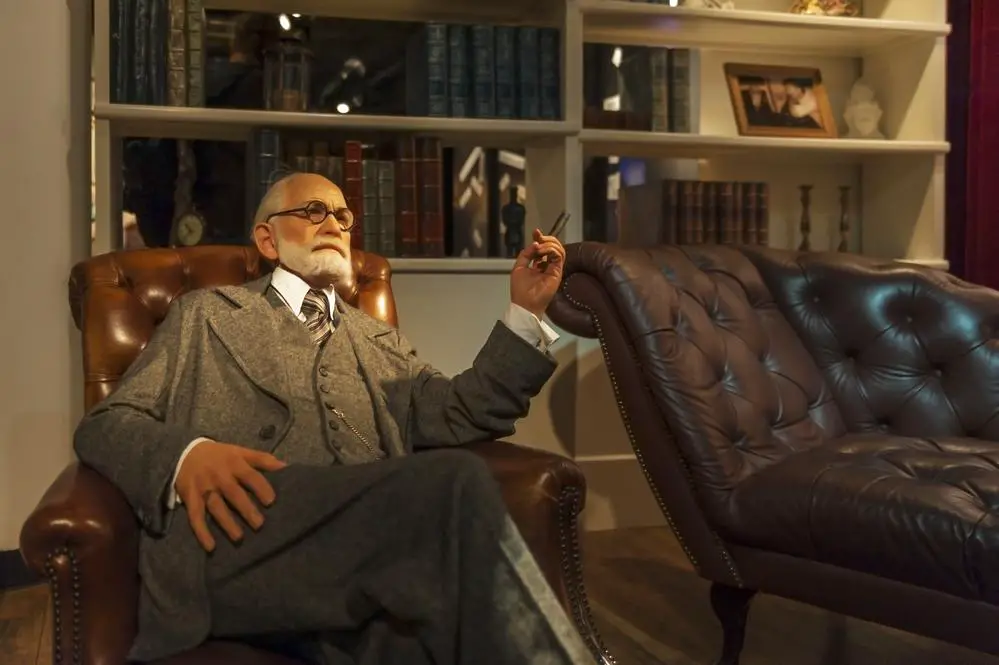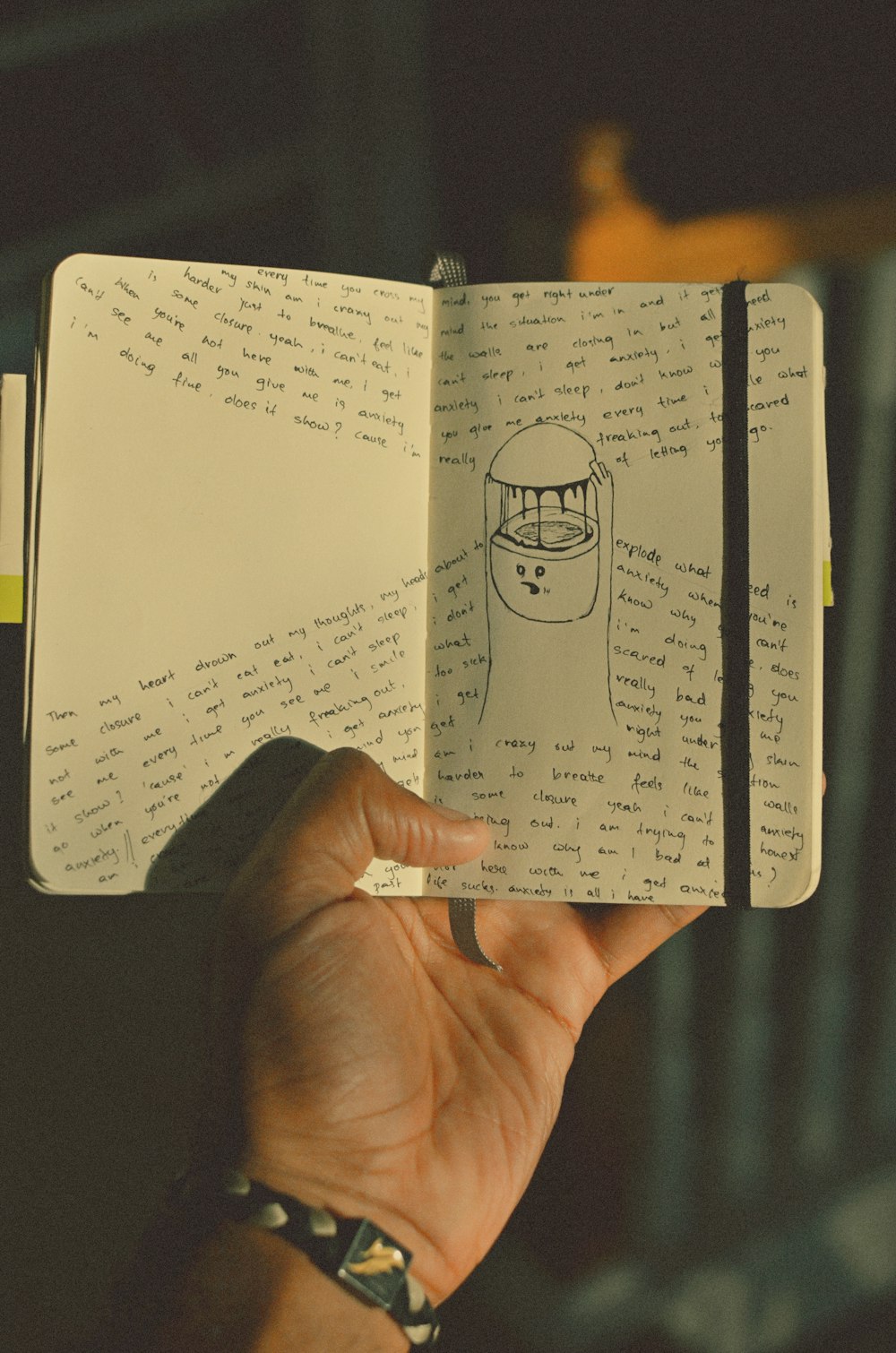As a BetterHelp affiliate, we receive compensation from BetterHelp if you purchase products or services through the links provided
So, you’ve stumbled upon the term “castration anxiety” and are probably thinking, “That sounds… intense.” And you’re not wrong. It’s one of those classic Freudian concepts that sounds like it belongs in a dusty old psychology textbook rather than in real life. But here’s the twist: it might be more relevant to understanding male psychology than you’d think.
Let’s get real for a second—Freud was a bit like that one relative we all have who can’t help but see things through their own, ahem, unique lens. His ideas were often controversial and, yeah, a little out there. But castration anxiety? It’s not what it sounds like—it’s not about a literal fear of losing one’s… jewels.
In Freud’s world, this anxiety is all about the subconscious mind and how early childhood experiences can shape a guy’s life in ways he might not even realize. From power struggles to relationship woes, Freud believed that this deep-seated fear of loss (symbolic, not literal) could be pulling some strings behind the scenes.
Ready to dive into the mind of Freud and see what this castration anxiety business is all about? Here’s a sneak peek of what you’ll take away:
- Unpacking the Jargon: We’ll translate Freud-speak into plain English. No psych degree is required to follow along.
- Why It Matters: How this century-old theory might still have some play in modern psychology.
- Real-Life Relevance: We’ll explore how these ideas appear in everyday situations—like why rejection can hit some folks harder than others.
- Moving Forward: Even if you’re not on board with all of Freud’s ideas, understanding them can add some exciting tools to your emotional toolbox.
Stick around, and let’s get to the bottom of this castration anxiety concept—Freudian slip-ups and all. Who knows, you might just come away with a few “aha!” moments about the men in your life… or even about yourself.
 Understanding Castration Anxiety
Understanding Castration Anxiety
What is Castration Anxiety?
Castration anxiety as per Sigmund Freud’s psychoanalytic theory.
Castration anxiety, as per Sigmund Freud’s psychoanalytic theory, is a fundamental concept within the framework of psychosexual development. It is primarily associated with the Oedipus complex, a crucial stage in a child’s psychosexual development, typically occurring during the phallic stage (ages 3 to 6 years).
Freud proposed that castration anxiety emerges in young boys as they become aware of anatomical differences between themselves and their same-sex parent, typically the father.
The anxiety revolves around the fear that they might lose their penis as punishment for their desires towards their mother and rivalry with their father. Freud posited that boys initially experience a phase of desiring their mother and perceiving their father as a rival for her affection.
This anxiety, according to Freud, plays a pivotal role in shaping the boy’s development and is a significant component of his theory of psychosexual, same developmental stages, and identity formation.
The central role of castration anxiety in male psychosexual development.
Castration anxiety plays a central role in male psychosexual development, according to Sigmund Freud’s psychoanalytic theory. It is a critical component of the Oedipus complex, a fundamental stage in a boy’s psychosexual journey.
During this stage, typically between the ages of 3 and 6, a young boy becomes aware of his attraction to his mother and perceives his father as a rival for her affection. Castration anxiety arises as the boy fears the consequences of his feelings and rivalry.
He worries that his father, in response to his desire for his mother, might castrate him, symbolically removing his penis. This anxiety and overwhelming fear also serves as a pivotal moment in development, pushing the boy to navigate these complex emotions.
Successful resolution of castration anxiety involves the boy renouncing his sexual desires for his mother and identifying with his father as a means of adopting societal norms of sexual dominance and male gender identity.u
Freud’s Psychoanalytic Theory
Sigmund Freud’s psychoanalytic theory highlights its relevance to castration anxiety.
Sigmund Freud’s psychoanalytic theory emphasizes the role of the conscious or unconscious fear of the mind in shaping human behavior and psychological development. The Oedipus complex, which includes castration anxiety, is a central concept in Freud’s theory, as it underscores the impact of early childhood experiences on adult personality and neuroses.
Manifestations and Implications
Castration anxiety can feel like the boogeyman of the male psyche—a spook that’s not just hiding under the bed but also lurking in the shadows of adulthood. So, what does this Freudian fright fest look like in real life?
Manifestations in Childhood:
- Nightmare on Freud Street: Little guys might have nightmares about losing their prized possessions (yep, we’re talking about the family jewels).
- Mommy Issues: Freud believed boys could develop a cocktail of affection and jealousy towards their moms—a real emotional tug-of-war.
- Playing it Cool: Kids might start to dial down their natural curiosity about their bodies and sexuality, thanks to a nagging fear of… consequences.
Carrying the Baggage into Adulthood:
- The Bedroom Blues: For some men, this anxiety doesn’t just vanish with puberty. It might show up as performance anxiety or a reluctance to get emotionally close.
- Swagger or Stagger: Guys might overcompensate for their insecurities by puffing up their chests and putting on a macho act, or they might go the other way and struggle with feeling ‘man enough.’
- Defense! (But Not the Sporty Kind): Some men might whip out defense mechanisms like denial or projection when they feel threatened—like emotionally donning a suit of armor.
Now, not every guy is going to experience castration anxiety in the same way or at all. But Freud believed that this fear of loss (of power, of control, of status) could be a silent partner in the dance of male behaviors and attitudes. Whether it’s in how men approach their relationships, careers, or even their hobbies, the echo of this deep-rooted anxiety might just be found in the background music of their lives.
Implications for Male Psychology
Castration anxiety isn’t just about a personal boogeyman—it’s got a guest pass to the whole theme park of male identity and development. So, what does the big picture look like?
On Male Identity and Development:
- Blueprint of a Man: Freud suggested that this anxiety isn’t just a phase—it’s part of the blueprint that shapes what masculinity means to an individual.
- The Compass of Desire: It might also play a role in who men are attracted to and why—like a compass that’s too interested in the magnetic field of their anxieties.
- Relational Dynamics: This anxiety could be the awkward third wheel in relationships, influencing everything from commitment levels to emotional openness.
Freud’s Legacy in Psychology:
- The Freudian Footprint: Love him or hate him, Freud’s ideas, including castration anxiety, left a footprint in psychology that we’re still using as a reference point today.
- A Grain of Salt: Modern psychology tends to take Freud with a grain of salt. Some of his ideas have aged about as well as milk, but they’ve also paved the way for new theories and therapies.
- Unconscious Influencer: At the end of the day, Freud’s most significant mic drop was the idea of the unconscious mind—it’s shaped everything from how we understand slip-ups to why we dream about showing up to work in our underwear.
Freud’s theories are like the roots of a massive tree called psychology. Some branches have grown in wild directions, others have been pruned, but the roots are still tangled up in the soil of our collective understanding of the mind. Understanding castration anxiety is a bit like a mental archaeology dig—it helps us uncover how past ideas about masculinity and development still influence the male psyche today.
Coping and Management
Coping with Castration Anxiety
When it comes to dealing with castration anxiety, it’s not like there’s a one-size-fits-all instruction manual. But there are some strategies that can help guys untangle these Freudian knots and navigate their inner landscapes a bit better.
Coping with the Inner Boogeyman:
- Time for Some Soul-Searching: A deep dive into their feelings can help men understand the “why” behind their fears and behaviors.
- Masculinity Reimagined: Building a personal definition of masculinity that isn’t rooted in fear but in confidence and authenticity can be a game-changer.
- Let’s Talk About It: Sometimes, getting by with a little help from a therapist can provide the tools to dismantle these fears.
Psychological Toolkit:
- Spot the Defense Mechanisms: Knowing when you’re in denial or projecting your fears onto others is half the battle.
- Mindfulness & Meditation: These practices can help guys stay grounded and not get swept away by anxiety.
- The Power of Dialogue: Engaging in honest conversations about insecurities and vulnerabilities can be incredibly liberating.
Addressing castration anxiety is about as comfortable as running a marathon in flip-flops, but with patience and support, it’s possible to get to a place where fears don’t call the shots. And remember, while Freud’s theories are interesting, they’re not the be-all and end-all of understanding male psychology. They’re just one piece of the complex puzzle that makes up the human mind.
Contemporary Perspectives
Contemporary psychology has expanded its horizons way beyond what Freud might have envisioned back in the day. While his ideas about castration anxiety are still kicking around, the approach has had a bit of a makeover.
Contemporary Takes on Castration Anxiety:
- New Kids on the Block: Modern psychologists might still nod to Freud, but they’re also bringing new insights from fields like gender studies and neurology into the conversation.
- Less Oedipus, More Spectrum: Instead of viewing male development through a strictly Oedipal lens, there’s now more focus on the broad spectrum of gender identities and experiences.
- Culture and Context Matter: Today’s thinkers consider how cultural narratives and societal expectations shape male anxieties, not just family dynamics.
Modern Therapies and Practices:
- Beyond the Couch: Psychoanalysis isn’t the only game in town anymore. Therapies like CBT help unpack and reframe anxiety-inducing thoughts.
- Let’s Talk It Out: Talk therapy has evolved to include more than just analyzing childhood memories—it’s about strategies for the here and now.
- Mindfulness and Beyond: Techniques that promote mindfulness and emotional regulation are key players in modern therapy settings.
In essence, while Freud’s concept of castration anxiety might still be relevant, it’s just one piece in a much larger puzzle. The modern approach is like a tapestry, weaving together various threads from different disciplines to get a fuller picture of male psychology.
Conclusion
In conclusion, castration anxiety, as proposed by Sigmund Freud, is a significant concept in psychoanalytic theory that continues to captivate the world of psychology.
It is a central element in understanding male psychosexual development, manifesting in various ways and impacting male identity and behavior. While Freud’s theories have evolved, his influence on psychology remains undeniable.
Coping with and managing castration anxiety involves self-reflection and therapeutic interventions, and contemporary psychology provides a more nuanced and comprehensive understanding of these issues.
Frequently Asked Questions
Is castration anxiety still relevant in modern psychology?
Yep, it’s still on the table. While we don’t chat about it over coffee like Freud might have, it’s considered within today’s broader understanding of gender, sexuality, and identity development.
How does castration anxiety show up today, if at all?
It might not crash the party wearing a “Hello, My Name Is Castration Anxiety” tag, but its themes can be seen in modern discussions about masculine insecurities and identity crises.
What’s the difference between castration anxiety and other forms of anxiety?
Think of castration anxiety as a very niche worry about power and masculinity that Freud believed pops up in childhood. Other anxieties are more about the here-and-now stresses and can be about anything from spiders to social shindigs.
Can castration anxiety affect relationships?
It could, if you’re following Freud’s script. He’d say this underlying fear might make some dudes hesitant or defensive in relationships.
How do professionals address castration anxiety today?
It’s less about lying on a couch talking about your childhood (though that can still happen) and more about practical strategies to build self-esteem and tackle insecurities.
Do women experience a form of castration anxiety?
Freud thought so, calling it “penis envy.” But today, we understand that insecurities about power and identity are universal and not limited to one gender or body part.
Remember, while castration anxiety can sound a bit out there, it’s part of a larger convo about how we all wrestle with insecurities and identity. It’s not the whole story, but it’s an exciting chapter in the ongoing saga of understanding ourselves.
- Left Arm Pain and Anxiety: Understanding the Relationship - November 23, 2023
- Anxiety Paralysis: Coping with Overwhelming Stress - November 23, 2023
- Anxious vs. Nervous: Differentiating Emotions and Responses - November 15, 2023
This site contains affiliate links to products. We will receive a commission for purchases made through these links.


 Understanding Castration Anxiety
Understanding Castration Anxiety

